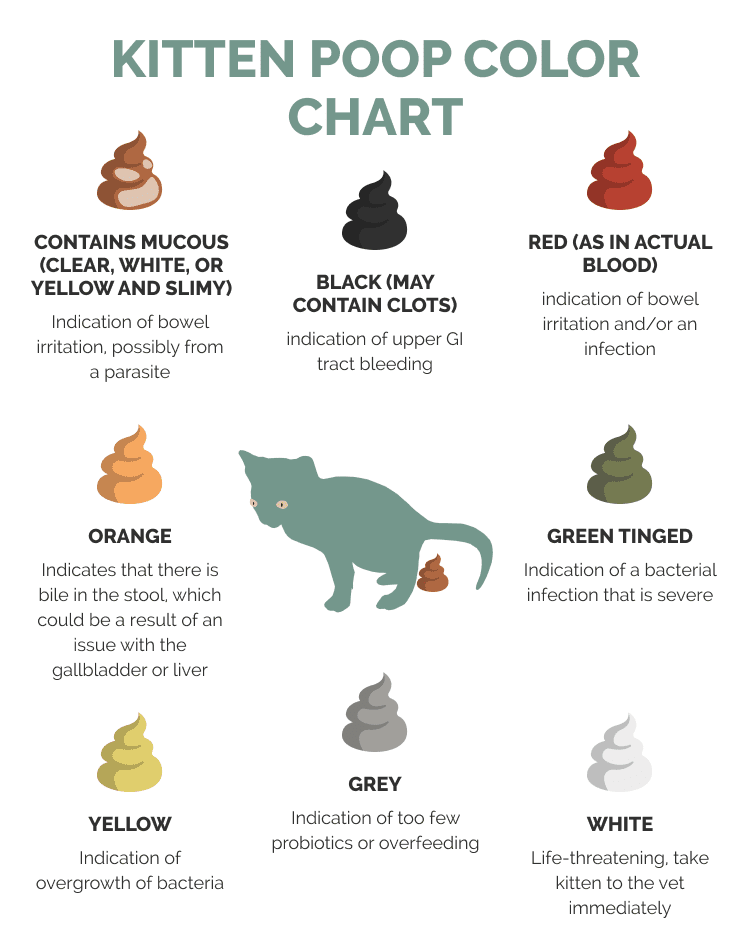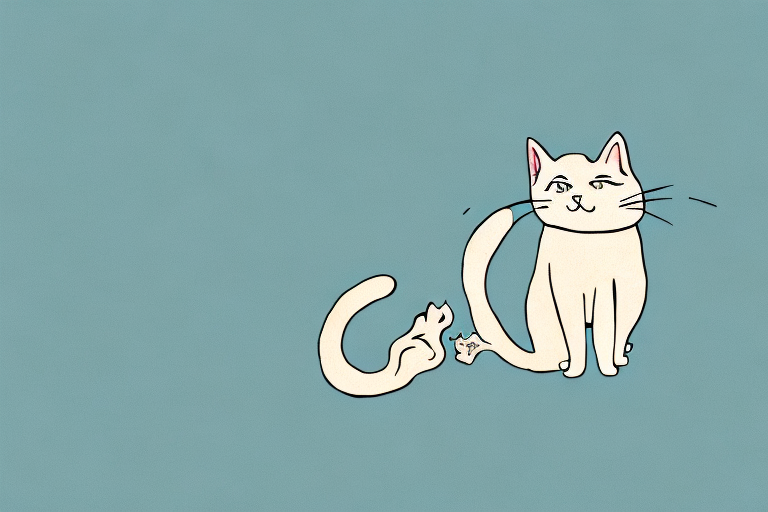“That smell again…” You’ve just walked in the door after a long day, and the familiar, unpleasant scent of cat poop greets you. But this time, it’s not in the litter box. It’s on the floor, right by the couch. You’re exasperated. You love your cat, but this kind of behavior is frustrating, confusing, and frankly, unsanitary.

Image: bibopet.com
We’ve all been there. As devoted cat parents, we want the best for our feline companions. But why do they sometimes choose to relieve themselves outside of their designated litter box? This article will delve deep into the common reasons your cat may be pooping on the floor, offering practical solutions to regain control of your cat’s bathroom habits and restore peace in your shared living space.
Decoding the Message: Why Your Cat Might Be Pooping on the Floor
Before we dive into the possible reasons, it’s crucial to understand that cats are incredibly clean animals. They’re naturally inclined to keep their bathroom areas separate from their living spaces. So, when your cat is pooping outside of their litter box, it’s a clear sign that something is amiss.
Think of it as a message: your cat is trying to communicate a problem they’re facing. Understanding what’s causing this “protest poop” is essential to resolving the issue and restoring harmony in your home.
1. The Litter Box Itself: Is it a Place Your Cat Wants to Use?
The most common reason for your cat pooping on the floor is simply that the litter box itself is not appealing. This can be due to several factors:
- Dirty Litter Box: Cats are very sensitive to cleanliness. If the litter box isn’t scooped regularly, or if it’s overflowing with waste, your cat will choose a cleaner, more pleasant place to do their business.
- Litter Type: The type of litter can be a major deterrent for some cats. If your cat has sensitive paws or dislikes the texture or scent of the litter, they may avoid the box. Experiment with different types, from clay to silica, to find their favorite.
- Location: Cats like privacy. If the litter box is in a high-traffic area or near loud noises, it may not be the ideal spot for your cat to relax and go to the bathroom.
- Too Few Boxes: Cats don’t always like to share! If you have multiple cats, ensure there are enough litter boxes, ideally one more than the number of cats you have.
2. Medical Issues: A Possible Underlying Cause
Sometimes, the reason for your cat’s inappropriate elimination is a medical issue. If your cat is suddenly and consistently pooping on the floor, consider consulting your veterinarian:
- Urinary Tract Infections (UTIs): These infections can make urination painful, leading to your cat avoiding the litter box.
- Constipation: Cats struggling to poop due to constipation may also seek out more comfortable places to relieve themselves.
- Other Underlying Conditions: Certain health issues, such as kidney disease or other gastrointestinal problems, can also contribute to changes in your cat’s bathroom habits.

Image: blog.catbandit.com
3. Stress: A Common Culprit in Cat Behavior
Cats are highly sensitive creatures and easily stressed. Changes in their environment, even seemingly small ones, can trigger anxiety:
- New Pet: Introducing a new pet, cat or otherwise, can create tension and cause your cat to start marking territory outside of the litter box.
- New Furniture: New furniture can make your cat feel insecure and displace them, especially if they see it as a threat to their territory.
- Moving: Moving to a new home can be highly stressful for cats, causing them to revert back to old instincts and mark their new environment.
- Construction Noise: Even loud sounds, such as renovation work or construction nearby, can stress your cat and cause them to become anxious.
4. Age: Senior Cats and Bathroom Changes
Senior cats, like humans, often experience age-related changes, including cognitive decline and decreased mobility. These changes can affect their ability to use the litter box consistently:
- Cognitive Decline: Senior cats may forget where their litter box is, or they may not have the physical capacity to get there.
- Mobility Issues: Arthritis or other joint problems can make it difficult for your cat to navigate to the litter box, making them seek out easier spots.
5. Territorial Issues: Marking Your Space
Cats are territorial creatures. If your cat feels threatened by another cat, dog, or even a new person in the house, they may be marking territory outside the litter box.
- New Cat in the House: Adding a new cat to the home can lead to a power struggle, and your existing cat may try to assert dominance by marking their territory.
- Other Animals: Even if your cat is usually friendly with a dog in the household, changes in behavior from the dog, such as increased aggression, can trigger your cat to mark their space.
- New Person: A new roommate or partner in the home may be perceived as a threat by your cat. They may try to reclaim their territory by marking in places that are particularly important to them.
Reclaiming Your Cat’s Bathroom Habits: Practical Solutions
Feeling overwhelmed? Don’t despair. Armed with an understanding of the possible causes, you can take action to help your cat get back on track. Here are practical tips to stop your cat from pooping on the floor:
- Clean the Litter Box Regularly: Scoop the litter box at least once a day, and ideally twice if possible. This will ensure it remains clean and enticing.
- Experiment with Different Litters: If your cat seems to dislike the litter, try different types. You can also try adding a layer of newspaper, play sand, or catnip to help mask any unpleasant scents.
- Relocate the Litter Box: If your litter box is in a high-traffic area or near a noisy appliance, move it to a quieter, more private spot.
- Add More Litter Boxes: If you have more than one cat, consider adding more litter boxes. Aim for one more box than the number of cats you have.
- Rule Out Medical Conditions: If your cat suddenly starts pooping outside the litter box, take them to the vet for a checkup. Medical conditions can often be treated effectively.
- Address Stressors: Identify and address any stressors in your cat’s environment. Consider using calming pheromone sprays or diffusers to help reduce anxiety.
- Create a Relaxing Space: Provide your cat with a safe and comfortable space to relax and retreat from any stress. This might include a cat tree, a hammock, or a bed in a quiet corner of the house.
Expert Insights: Tips from the Professionals
Dr. Emily Carter, a veterinarian specializing in feline behavior, emphasizes patience and understanding when dealing with this issue.
“Don’t punish your cat for pooping outside the box,” she advises. “This can build up fear and distrust, further complicating the problem.” Instead, focus on creating a positive and supportive environment that encourages your cat to use the litter box.
What About the Poop on the Floor?
Now that you’re tackling the root cause of your cat’s behavior, what about the mess? Cleaning up after your cat’s accidents is crucial to prevent lingering odors. Use a pet-friendly enzymatic cleaner to break down the waste and eliminate any offensive scents.
Why Would My Cat Poop On The Floor
Conclusion: Restoring Harmony and Understanding
We’ve delved into the common reasons why your cat might be pooping on the floor, and we’ve explored practical solutions to address this issue. Remember, patience is crucial. It may take time for your cat to adjust to new routines or environments.
By understanding your cat’s needs, addressing underlying issues, and providing a clean and supportive environment, you can help them regain their confidence and prevent them from pooping on the floor again. And, most importantly, you can strengthen the bond with your beloved feline companion, making your home a happy and harmonious space for both of you.






